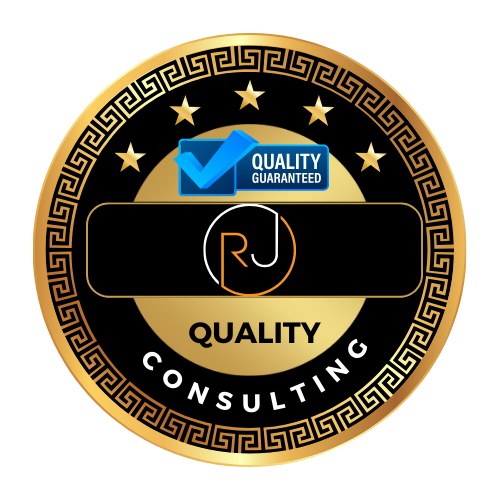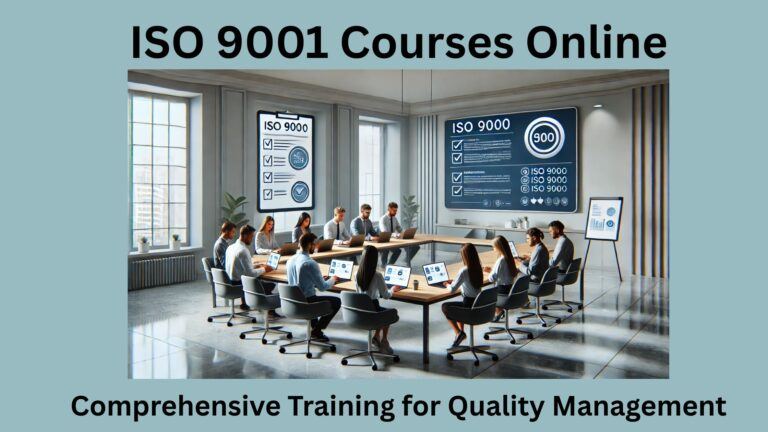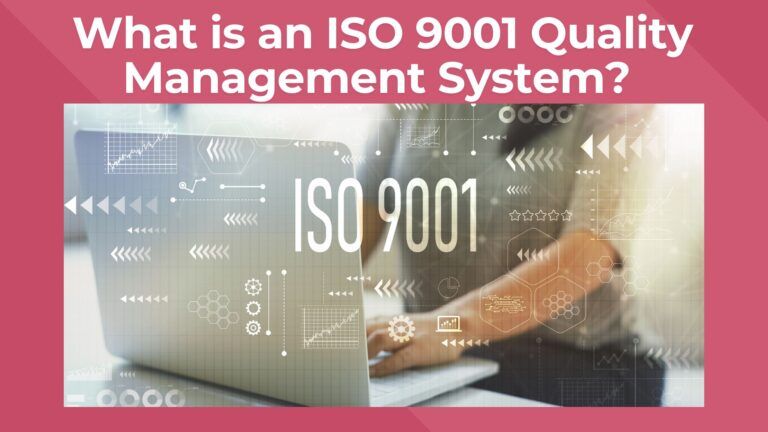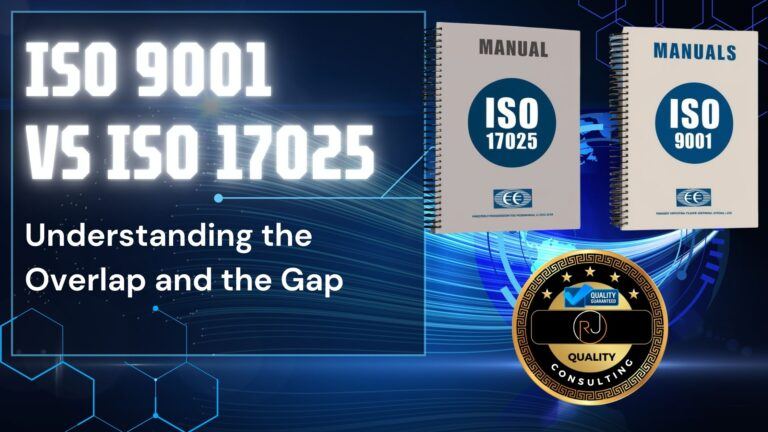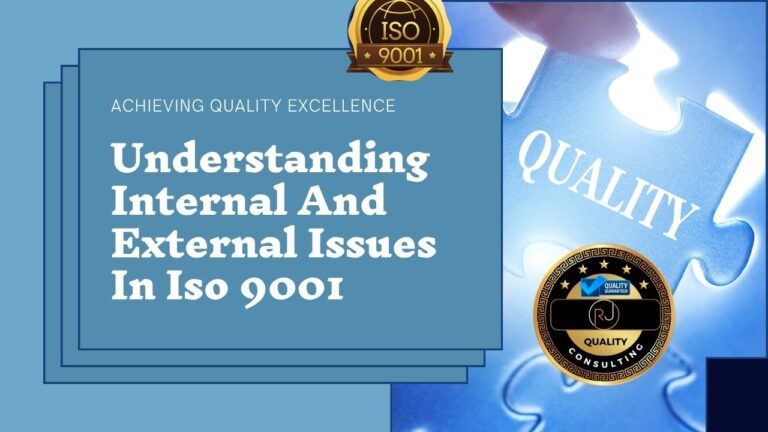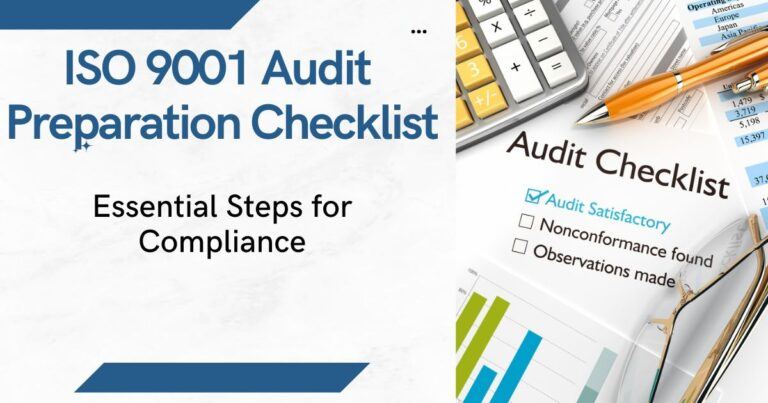The Top ISO 9001 Employee Training Program: Enhancing Quality Management Systems
In the world of quality management, ISO 9001 stands as a fundamental framework that guides organizations in establishing, maintaining, and continually improving their quality management systems (QMS). ISO 9001:2015, the most updated version of this standard, emphasizes the importance of not just having well-documented procedures but ensuring that your workforce is adequately trained and competent. In this article, we will share with you what we believe is the top ISO 9001 employee training program available online.

For an organization committed to the principles of ISO 9001:2015, employee training is indispensable. It’s not just about equipping your team with the necessary knowledge; it’s about fostering an environment where every member is aware of their role within the system. By understanding how individual responsibilities tie into the larger quality objectives, employees can significantly impact the effectiveness and efficiency of the QMS. Furthermore, proper training ensures that the workforce is adaptable and ready to implement any necessary changes dictated by internal audits and continual improvement processes.
Key Takeaways
- What is the top ISO 9001 Employee Training Courses Online?
- ISO 9001 is a quality management system standard that necessitates continuous employee training.
- Effective training under ISO 9001:2015 links employee roles to quality objectives and system effectiveness.
- Training outcomes should be audited to ensure continual improvement of the QMS.
The Top ISO 9001 Employee Training Course
Choosing an effective ISO 9001 employee training program depends, of course, on your immediate needs and the status of your Quality Management System. Whether you are looking for a custom training for your staff that has the capabilities of sparking enthusiasm and equipping your staff with the essentials and insights of ISO 9001 or presenting the basics to your employees and sparking enthusiasm or simply engaging your staff with the principles of ISO 9001, this is a great course to check out.
📘 ISO/IEC 17025 Quality Manual Template
Accelerate your lab’s accreditation process with our comprehensive Quality Manual Template, designed to align with ISO/IEC 17025:2017 standards.
- Fully editable and customizable to fit your laboratory’s needs.
- Includes all necessary procedures, forms, and policies.
- Structured to facilitate easy implementation and compliance.
- Developed by experts with extensive ISO/IEC 17025 experience.
Check Out Our Great Selection of ISO 9001 Online Training Courses
Looking to master ISO 9001:2015 or ensure top-notch training for your team? Explore our Online Courses here!
I have been involved with ISO 9001 for over 30 years now, and I can tell you firsthand the below mentioned course has what your organization needs.
Here’s a little transparency: Our website contains affiliate links. This means if you click and make a purchase, we may receive a small commission. Don’t worry, there’s no extra cost to you. It’s a simple way you can support our mission to bring you quality content.”
Understanding ISO 9001 and Its Importance
Your ability to improve and ensure quality across various aspects of your business can hinge significantly on your understanding and implementation of the ISO 9001 standard. This section will guide you through the essentials of ISO 9001 and underscore its critical role in enhancing your operations.

Overview of ISO 9001 Standard
ISO 9001 is an international standard that outlines the criteria for an effective Quality Management System (QMS). It is designed to be adaptable across any industry and is focused on meeting customer expectations and delivering customer satisfaction. Alignment with the standard demonstrates your commitment to consistently offering quality products or services.
Fundamentals of Quality Management Systems
At the core of ISO 9001 is the principle of a Quality Management System, a structured framework that enables you to direct and control your company in terms of quality. The main pillars of a QMS include customer focus, the involvement of people, process approach, improvement, evidence-based decision making, and relationship management. Your QMS is the foundation on which ISO 9001 certification is built.
Benefits of ISO 9001 Certification
Adhering to the ISO 9001 standard can yield considerable benefits:
- Consistency in product or service quality,
- Enhanced customer satisfaction,
- Improved operational efficiency,
- The ability to enter new markets due to the recognition of the ISO standard,
- Higher potential for business growth and customer loyalty.
The Role of Management in QMS
Your leadership commitment plays a pivotal role in the effectiveness of your QMS. ISO 9001 necessitates active management involvement in driving the QMS forward. This includes setting a strong customer focus, establishing clear policies, formulating objectives, and ensuring these are met through regular reviews and continual improvement efforts.
Ensuring Compliance with ISO 9001 Clauses
Compliance with ISO 9001 requires adherence to its various clauses, which cover critical aspects like context of the organization, leadership, planning, support, operation, performance evaluation, and improvement. You must ensure that each clause is addressed within your QMS, with proper documentation and processes in place to meet the requirements.
Developing an ISO 9001 Training Program

When implementing an ISO 9001 Training Program, your focus must be on aligning your organization’s goals with the competence and awareness requirements of the standard. This includes establishing clear objectives, developing a structured training matrix and plan, selecting practical training methods, and using real-life examples to ensure the training is relevant and effective.
Establishing Training Objectives
To create an exciting and educational training program, you first need to define specific goals. These objectives should directly address the needs of your organization to maintain quality standards according to ISO 9001 requirements. Goals might include understanding ISO 9001 principles, mastering internal audit techniques, or improving risk management strategies. Ensure each objective is measurable, attainable, relevant, and time-bound (SMART).
Creating a Training Matrix and Plan
Next, develop a training matrix that matches individual roles with necessary competencies. This can be presented in a tableau format:
| Role | Required Training | Competency Level Desired |
|---|---|---|
| Quality Manager | ISO 9001:2015 Fundamentals | Advanced |
| Internal Auditor | Effective Audit Practices | Intermediate |
| Process Operator | Risk Management Techniques | Basic |
Once your matrix is set up, translate it into a training plan that outlines schedules, course titles, trainers, and modes of delivery.
Selecting the Appropriate Training Method
Consider an array of training methods to cater to different learning styles. This could include interactive online training courses that offer flexible, on-demand learning opportunities, as well as traditional classroom settings for more hands-on approaches. Your choice should facilitate practical engagement and ensure all employees can access the necessary training.
Incorporating Real-Life and Practical Examples
Include real-life examples and practical exercises within your training modules. This approach helps bridge the gap between theory and practice, allowing employees to better understand and apply ISO 9001 principles to their everyday tasks. By incorporating scenarios they recognize, they are more likely to retain information and apply it effectively.
Executing Effective ISO 9001 Training

Efficient ISO 9001 training is a foundational step in enhancing overall quality management. Your focus should be on developing proficiency, ensuring that your employees understand and are capable of contributing to your organization’s quality objectives.
Facilitating Employee Awareness and Competence
To ensure employee awareness and competence, you need to start with a baseline training that covers the ISO 9001 standard comprehensively. This training should define the importance of quality management and the role that each employee plays within this system.
- Topics to cover:
- Overview of ISO 9001 standard
- Quality objectives and policies
- Employee roles in quality management
Consistent feedback and evaluation mechanisms are essential to measure the ongoing development of employees’ understanding. Use tailored assessments or performance metrics to ensure the mastery of these foundational concepts
Providing Skills and Tasks Specific Training
Once a fundamental understanding is secured, move on to providing skills and tasks specific training tailored to the unique roles within your company. This ensures that each employee can apply quality principles directly to their daily operations.
- Key areas for role-specific training:
- Quality control procedures
- Specific documentation practices
- Corrective actions and continual improvement processes
Each session should be interactive and incorporate real-world scenarios to enhance practical application, promoting consistency in executing quality tasks.
Implementing Training and Assessing Effectiveness
The actual implementation of training is a critical phase where you transform theory into practice. You must employ diverse training methods such as workshops, simulations, and on-the-job mentoring to cater to various learning styles.
- Methods:
- Workshops
- Simulations
- On-the-job training
Post-training assessment is crucial; utilize surveys, direct observation, and quality results to evaluate the program’s effectiveness, ensuring competence has been achieved and maintained.
Securing Management and Workforce Buy-In
Achieving management and workforce buy-in is pivotal. Management’s commitment to training illustrates to employees the importance of their development and adherence to quality standards. Clear communication on how the training aligns with business objectives will motivate the workforce.
- Strategies for securing buy-in:
- Management endorsements and active participation
- Transparent communication of benefits
- Acknowledgment of employee progress and contributions to quality improvements
Remember, fostering an environment where training is valued can drive commitment from the workforce, enhancing the overall success of your ISO 9001 training program.
Auditing and Improving Training Outcomes

To strengthen your ISO 9001 Employee Training program, it’s essential to institute a robust auditing system that measures effectiveness, leverages feedback, and analyzes impact on customer satisfaction. This cycle of evaluation and improvement can significantly enhance the quality of your training outcomes.
Conducting Internal Audits and Reviews
As part of your internal auditing process, use ISO 19011 guidelines to assess the training elements of your Quality Management System (QMS). It’s critical for your internal auditor or a qualified lead auditor to examine if the training provided aligns with the organization’s goals and ISO 9001 requirements. Here are specific aspects to check during an audit:
- Compliance: Measure how well the training adheres to ISO 9001 standards.
- Effectiveness: Evaluate if employee skills have improved as intended.
- Documentation: Verify that all training records are accurate and complete.
Gathering Feedback for Continual Improvement
To achieve continual improvement, actively solicit and review feedback from participants and trainers. Collecting detailed responses can be streamlined through methods such as:
- Surveys & Questionnaires: Structured tools to obtain quantitative and qualitative feedback.
- Interviews: Direct discussions for in-depth insights.
- Observation: On-the-job performance assessments to see practical application of training.
Feedback is crucial for identifying strengths and areas for improvement in your training programs, contributing to the overall enhancement of employee competence.
Tracking Training Impact on Customer Satisfaction
An ultimate indicator of successful training is the positive effect on customer satisfaction. You can track this impact by:
- Quality Metrics: Assess changes in defect rates, returns, or complaints before and after training.
- Customer Surveys: Directly measure customer perception related to employee performance.
- Service KPIs: Monitor key performance indicators that link to trained competencies.
By analyzing these factors, you can correlate improvements in customer satisfaction with your training efforts, thereby justifying the investment and identifying potential areas for further improvement.
Conclusion

When you implement ISO 9001, comprehensive employee training is not just a requirement—it is a strategic investment. Your workforce becomes more aware of quality standards and how their role contributes to the organizational goals. Effective communication during training sessions ensures that these concepts are well-understood and embraced.
The training materials you develop should be clear, accessible, and relevant to your teams’ roles and responsibilities. They are foundational tools that bridge the gap between theoretical knowledge of ISO standards and practical, on-the-ground application. The use of varied formats—videos, manuals, quizzes—can enhance the learning experience and retention.
To complete the training loop, it’s essential to evaluate the effectiveness of the training. Use specific metrics to assess the outcomes:
- Reduction in nonconformance
- Increase in process efficiency
- Improvement in customer satisfaction
Additional Resources

For effective ISO 9001 employee training, a suite of additional resources can greatly augment your learning experience. Below is a curated list that you can leverage to deepen your understanding and improve communication on quality management principles:
Books and Publications
- ISO 9001:2015 for Small Enterprises – What to do?: A comprehensive guide tailored for small businesses.
- The ISO 9001:2015 Implementation Handbook: Provides practical advice and tips.
Online Courses
- ISO 9001 Quality Management Training: Available on platforms like Coursera and LinkedIn Learning.
- Internal Auditor Courses: For understanding compliance and internal audit practices.
Websites
- Advisera: Expert articles, webinars, and tutorials.
- ASQ (American Society for Quality): A wealth of information, including case studies and discussion forums.
Professional Organizations
- International Organization for Standardization (ISO): Access to official publications and updates.
- ISO Member Bodies: National standards bodies that provide local resources and support.
Networking and Conferences
- Quality Management Conferences: Annual events for professional development and networking.
- ISO User Groups and Forums: Online platforms for discussion and peer support.
Local Assistance
- ISO Consultants: Professional assistance for tailored employee training.
- Chamber of Commerce: Local seminars and resources for businesses.
Frequently Asked Questions
This section covers crucial information about employee training within the framework of ISO 9001:2015, focusing on requirements, competence, and the availability of online training options.
What are the requirements for employee training under ISO 9001:2015?
Under ISO 9001:2015, your organization must ensure that employees are competent based on appropriate education, training, or work experience. You are required to provide training or take other actions to satisfy these needs, and you must evaluate the effectiveness of the actions taken.
How does ISO 9001:2015 define competence, training, and awareness?
Competence is defined by ISO 9001:2015 as the ability to apply knowledge and skills to achieve intended results. Training is the process used to facilitate the acquisition of the necessary competencies, while awareness involves ensuring that employees understand the relevance and importance of their activities and how they contribute to the achievement of the quality objectives.
Are there specific ISO standards focusing on training and development?
While ISO 9001:2015 does not dictate specific standards for training, it sets out requirements for organizations to adequately determine and provide the necessary training that results in competent staff. Other standards related to training that could be referenced include ISO 10015 for quality management – guidelines for training.
What documentation is needed for training records according to ISO 9001?
You need to maintain documented information as evidence of competence, including the outcomes of education and training. Training records should include the person’s name, the training dates, the content covered, trainers’ qualifications, and records of any evaluations of training effectiveness.
Can ISO 9001:2015 employee awareness training be conducted online?
Yes, employee awareness training can be conducted online for ISO 9001:2015. This training can be self-paced, and quizzes may be included throughout the training to evaluate understanding. Certificates can typically be printed upon successful completion of the course.
🕒 Book Your Free 45-Minute Consultation
Have questions about ISO/IEC 17025 or ISO 9001 implementation or accreditation? Schedule a free 45-minute consultation with me to discuss your Company or laboratory’s needs and how we can achieve compliance together.
Schedule Your Consultation